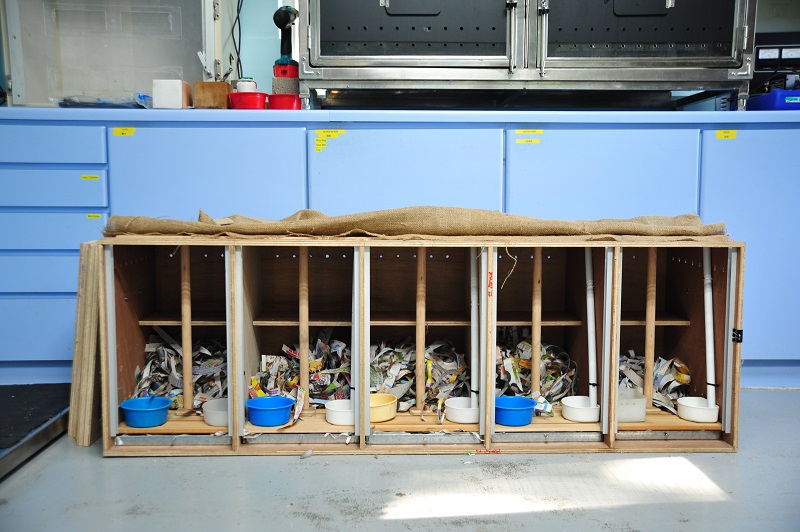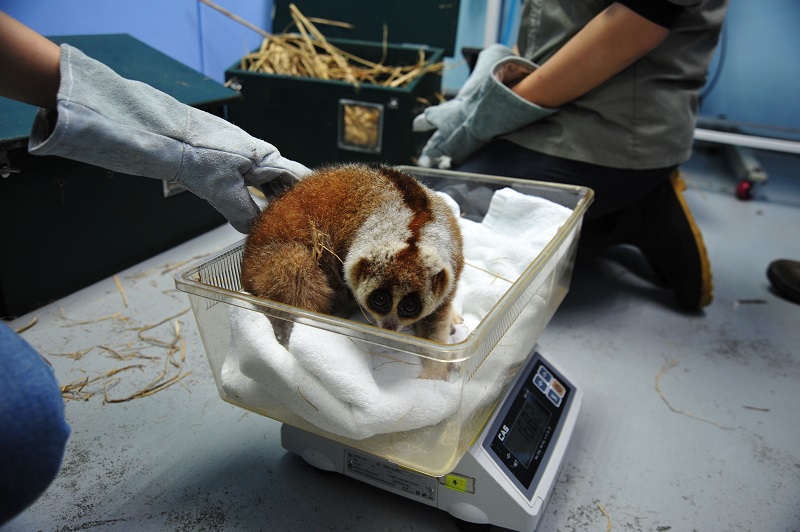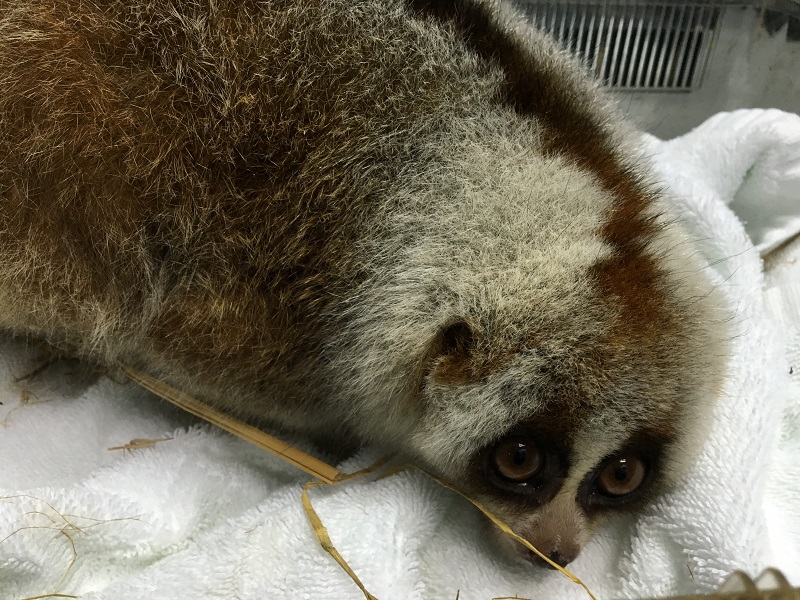Five Slow Lorises sent to UK to join conservation programme
On 19 December 2016, five Slow Lorises (Nycticebus bengalensis) flew from Hong Kong to the UK on route to their new home at the Shaldon Wildlife Trust. These primates are protected species listed as “Vulnerable” on The International Union for Conservation of Nature’s (IUCN) red list, meaning they are a species at risk whose wild populations are under threat. The five lorises were delivered to the Wild Animals Rescue Centre (WARC) of KFBG between 2006 and 2011. They were all discovered stray in Hong Kong by the Police and Agriculture, Fisheries and Conservation Department (AFCD). They were probably abandoned or escaped pets that had been held illegally.

A custom-built carrier for transporting the five Slow Lorises to the UK in comfort (note the vertical grip pole in the middle of each unit for the loris to hold)
After a thorough health check and veterinary treatment, the Slow Lorises were considered to be in good condition and have been maintained in the enclosures of the WARC awaiting re-homing into existing conservation programmes. We are pleased that the Shaldon Wildlife Trust has agreed to provide a permanent home for the primates. They will join a breeding programme which is coordinated across several European zoos and which aims to ensure the species will never go extinct. The lorises will also become ambassadors for their kind educating the public about the plight of these mammals.

Weighing the Slow Loris before departure
The Slow Loris is native to Northeast India, Bangladesh and across the Indo-Burma Biological Hotspot, (Cambodia, Laos, Burma, Vietnam, southern China and Thailand). It is nocturnal and arboreal (tree-dwelling), feeding on fruits, tree gum and insects. They will also take the occasional lizard, small bird or mammal if they come across them. Lorises are important seed-dispersers and pollinators in forest habitats. According to IUCN, the major threats to this species include habitat destruction due to farming, timber removal, human settlement, road building, dams, power lines, habitat fragmentation, soil loss and erosion, and deliberately set fires; they are also hunted and traded for food, traditional medicine, and sport, and captured as pets.

There is a growing demand from the illegal pet trade because of the loris’ cute appearance. However, it is an arboreal nocturnal animal that should remain in the forests where it plays an important predatory and seed dispersal role, in the forest ecosystem.
Interestingly, they are the only known poisonous primate. They exude a toxin from glands in their arms, one of many good reasons not to keep a loris as an illegal pet!
Please do not support the illegal wildlife trade. You can help save this species and others by not buying exotic animals to keep as pets, by not buying Loris parts in Traditional Medicine, and by reporting any suspected illegal wildlife trade activities to the Agriculture, Fisheries and Conservation Department at (852) 2150 6978 or the KFBG hotline at (852) 2483 7200.
IUCN description of this species:
http://www.iucnredlist.org/details/39758/0


